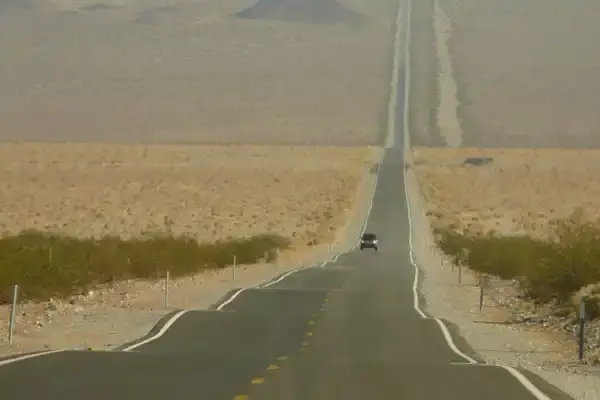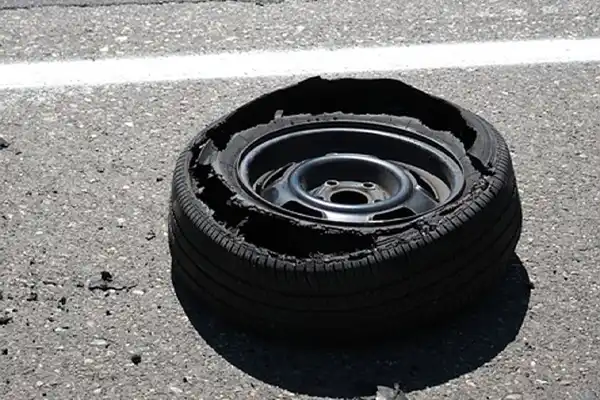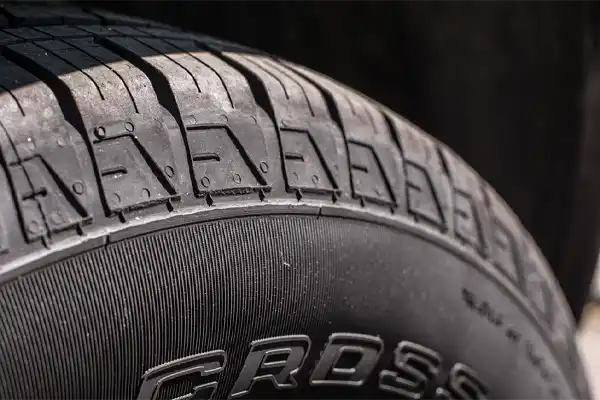How Long Do Tires Last in Tucson?
If you’ve read our last blogs on oil weight and battery life, you might have caught on to a common theme. Arizona is a harsh environment for a car, and components wear out much faster here than in other parts of the country.
The driving factor behind premature wear and tear is heat. Vehicle operation generates a lot of heat on its own, but factor in the number of 100+ degree days in Tucson, and the temperatures get extreme.
It’s not just engine components that suffer in high temperatures. You will likely be going through tires faster if you live in Arizona. In this article, we will look into why tires wear out so quickly here, and how long you should expect them to last!
Extreme Heat and Tires Don’t Mix Well
Hot temperatures can cause over inflation, tread wear, and make blowouts more likely to occur.
Road Temperature
Unlike engine components, tires have to deal with scorching hot asphalt. In the summer, asphalt in Tucson can reach over 180 degrees. Hot asphalt drastically affects the durability of the rubber, resulting in much faster wear and tear.

Outside Temperature
Just like a car battery, your tires are exposed to the temperature outside. For every 10 degrees the outside temperature increases, you can expect the air pressure in your tires to increase by 10 degrees. Over inflation reduces the size of a tire’s contact patch, leading to irregular and faster tread wear. Generally, the variability in inflation from ambient temperature will not cause a significant impact on tire life.
Tire Blowouts
Blowouts occur on tires that are severely worn, but heat can exacerbate the issue. Like we said before, scorching hot asphalt weakens the rubber on your tires. Combine that with worn down tread, and the risk of a blowout goes up exponentially.

How Long Will My Tires Last in Tucson?
Many factors impact tire life outside of temperature, such as the type of tire (summer, all-season, winter) frequency of driving, and how well they are maintained. Generally, a well-maintained tire will last 4-6 years or 60,000 miles.
If you live in Tucson or elsewhere in southern Arizona, tire life will be shorter. On average, you will have to replace them every 3-4 years or 40,000 miles.
How can I make my tires last longer?
Replacing tires more frequently can add a significant amount to the overall cost of ownership for your vehicle. To get the most out of your tires, make sure you are maintaining them properly and more importantly, using the correct type of tire for this environment.
Tire Type
Tires are constructed out of different rubber compounds. Some compounds are better suited to hot temperatures.
Winter Tires
Winter tire tread is soft and pliable at low temperatures, providing good traction on snow and ice. Most people won’t have winter tires in southern Arizona, but it’s worth mentioning that the pliable rubber compound in winter tires will practically disintegrate while driving on our hot roads. If you had a set of winter tires on during the summer, you would get very little life out of them.
Summer Tires
Summer tires are engineered to operate in warm weather, usually over 45 degrees. In the cold the rubber compound on summer tires becomes very firm, providing little traction. Naturally, this makes them a great choice in a state like Arizona. You will get a much better life out of summer tires than you would with winter tires, and the performance will be excellent.
All-Season Tires
While summer tires are a great option in hot weather, they may not last as long as an all-season tire. This is again due to the rubber compound used. Summer tires are often performance oriented and provide good traction and handling, accomplished with softer rubber. All-season tires use a harder compound and will generally have a longer life.
An added benefit of all-season tires is better wet-weather performance during Arizona’s monsoon season.
Tire Maintenance
Just like your engine or transmission, your tires require proper maintenance to get the most out of them.
Rotations
Tire rotations help ensure even tread wear throughout the life of the tire.
Proper inflation
Over/under inflation impacts both tire life and performance. Make sure to check your tire pressure when cold to get an accurate reading and keep them within a few PSI of the recommended inflation level.

Alignments
Getting an alignment helps reduce friction, which will improve tire life, handling, and fuel economy.
Tires and More at Borst Automotive
Time for new tires? Need to talk to an expert before making a purchase? Come on in to Borst Automotive and speak with one of our team members. We will ensure you choose the right tire for your car, and help you get the longest possible life out of them, no matter how hot it gets!

Borst Automotive is here to help when you need it. Give us a call, schedule an appointment, or stop in today!
